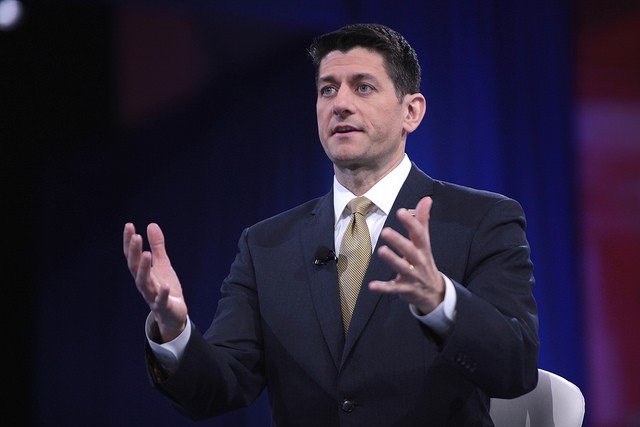It's now been six years and 51 weeks since President Obama signed the Affordable Care Act. That means it's been six years and 51 weeks of court battles and Republican efforts to force its repeal and promises that, if given the reins of power, they would replace it with something better. That also means they've had six years and 51 weeks to figure out what that something should look like.
So you'd think they'd have come up with something smarter than the American Health Care Act, a plan dismissed as callous by the left, lambasted as unviable by conservative wonks, despised as politically catastrophic by Republican elites and ridiculed as "Obamacare lite" by the far right. In short, House Speaker Paul Ryan took seven years to develop a bill that pleases no one except President Trump, who is less concerned with policy details than he is desperate for a political victory. If you're cynical, you'd say the AHCA was designed to fail, allowing House Republicans to say they tried to repeal Obamacare while absolving them of responsibility for actual policymaking.
Even if that's not the strategy, this first week of Republican health care policy has revealed three things that will be important to keep in mind over the next four years.
The first is the Trump administration's continued intentional erosion of trust in public institutions – in this case, a preemptive campaign launched last week to discredit the nonpartisan Congressional Budget Office, which released its analysis of the bill Monday. That analysis predicted that the AHCA will increase the number of uninsured by 24 million and will generally be terrible for poor and older people.
On Sunday, however, Trump's director of the Office of Management and Budget proactively dismissed the CBO report he hadn't seen yet as an exercise in futility, telling Fox News that "estimating the impact of a bill of this size probably isn't the best use of [the CBO's] time."
That is literally the CBO's job, and the CBO does it well. (While not dead-on accurate, the CBO predicted the effects of Obamacare better than other forecasters.) Trump's OMB, however, is reportedly planning to release its own forecast, which will no doubt be friendlier than the CBO's, thus perpetuating a pattern in the Trump administration: When reality is inconvenient, invent your own. Thus Health and Human Services Secretary Tom Price can say with a straight face: "Nobody will be worse off financially."
Which brings us to our second point: Trump, who during the campaign promised to cover everybody for less money, is playing his supporters for suckers. Price, after all, is unequivocally lying. The AHCA swaps out the ACA's subsidies for less-generous tax credits and derives most of its $337 billion in deficit savings from drastic cuts to Medicaid. Lower-income people are going to pay more or go without insurance – especially the rural, blue-collar whites who went strongly for Trump, according to a Wall Street Journal analysis.
A Harvard economist estimates that those who've used subsidies to purchase insurance on the health care exchanges will fork over nearly $2,500 more per year. Those between the ages of 55 and 64 could pay almost $7,000 more, as the AHCA specifically allows insurers to jack up rates on older Americans. Most of the plan's benefits will go toward the highest earners. According to the Tax Policy Center, those in the top 1 percent would receive an average tax cut of $33,000; in the top 0.1 percent, almost $200,000.
Most troubling, the last week has afforded a glimpse of the social-Darwinist prism through which top Republicans apparently view the less affluent. On Sunday, Ryan admitted that his plan would cover fewer people, but he said he wasn't worried about it, because "we're not going to make an American do what they don't want to do." In other words, people who would no longer be able to afford health insurance would be "choosing" to forgo it, and that's OK.
Then there's U.S. Rep. Jason Chaffetz of Utah, who, like Ryan, believes poor people make poor decisions. "You know what," he lectured last week, "Americans have choices, and they've got to make a choice. And so maybe, rather than getting that new iPhone that they just love and want to go spend hundreds of dollars on, maybe they should invest in their own health care."
This talk of "freedom" elides a crucial point. If you can't afford health care, not having it isn't a choice. For all its design flaws (e.g., not having a public option or Medicare buy-in) – many exacerbated by Republican sabotage (e.g., 19 states, including Florida, not expanding Medicaid) – the ACA recognized that. So while some premiums have spiked and several insurers have bailed, the subsidies and Medicaid expansion have also brought the uninsured rate to an all-time low, covering more than 20 million people.
The Republican replacement isn't concerned with that stuff. Instead, it's rooted in the Randian philosophy that the poor are poor because they're lazy or make bad choices and that health care isn't a right but a privilege – and that privilege is secondary to the tax burden placed upon the wealthy.


